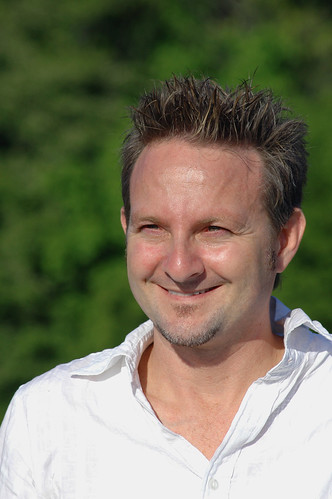the ecology of stress in starting churches in the city
 picture from ny times article
picture from ny times articleURBANIZATION OF THE WORLD
according to the population reference bureau, throughout most of history, the human population has lived a rural lifestyle. in 1800 only 3 percent of the world's population lived in urban areas. by 1900 almost 14 percent were urbanites, and by 2000 about half the world was living in urban areas. those who chart these trends say that in 2030, 60% of the world will be living in urban areas.
so while the human population is quickly moving to urban areas, many churches have been moving out of the heart of the city, though i am glad to say that recently there have been some movements that are starting to reverse that trend. this is good. but living in the heart of a big city has its stresses, as you can see from my previous blog on la. besides the typical stresses that thomas holmes and richard rahe pointed out in their famous stress assessment they developed back in 1967, city living has it's own set of stresses. and on top of that there are the stresses of starting communities of faith.
STRESS IN THE CITY
while there are many benefits to living in the city, like the variety of people, cool events, food from every part of the world, opportunity, world connection, and so forth, city living has its stresses. besides traffic you have lack of space, parking difficulty, more car accidents, typically more crime, and then the daily emotional drain of strangers going off on you, needing something or just treating you wierd.
STRESS IN STARTING CHURCHES
starting a church has its own stresses, let alone starting a church in a different city in the heart of the city. we can experience stresses that relate to our role, the structure of the church, interpersonal conflict, intrapersonal conflict, ministry dissappointments, unrealistic expectations, constant change.... the list unfortunately goes on.
QUARTERLIFE CRISES
if that wasn't enough, those who study human behavior have termed a new phenomenon that people around the age of 25 experience. it is called a "quaterlife crises." alexandra robbins and abby wilner coined this term in a book entitled conquering your quaterlife crises, in which the authors compare a quaterlife crises to a midlife crises, except that it occors twenty years earlier. they assess that the quarterlife crises is a response to "overwhelming instability, constant change, too many choices and a panicked sense of helplessness."
here is how one person put it, "it's what happens when those of us who have experienced nearly two decades in a sheltered school setting are released into a world where there is no definitive or obvious way to get from point A, graduation, to point B, successfully living independently. the endless choices and possibilities invigorate some, but prove overwhelming to others. it's everything that surfaces when you begin asking the questions: 'what in the heck am i doing with my life?' and being quietly wondering: who am i? what is my purpose? and where is God in all of this."
in essence, the quaterlife crises happens to people in their twenties who find themselves flooded with pressures of living in a fasted paced world full of uncertainties and pressures to succeed. some people get off on this, while others experience extreme fears, fear of rejection, failure or fear of not fitting in.
when we are experiencing stress in a variety of ways, it is important to assess our stress levels, because even if you are a person who can handle a high level of stress, we all have our limits. "about" has some various stress assessements as well as ways to discover your stress type. stress assessments are important, for as any good doctor knows, "problem resolution always begins with correct problem identification."
and so if anyone wants to last in urban ministry, we need to understand how stressed out we are, and how to overcome stress and burn out.
STRESS VS BURNOUT
those who study stress and burnout make distinctions between these two. stress is often known as the "hurry sickness" while burnout is emotional exhaustion, or what dr. arch calls "compassion fatigue". so it doesn't matter if you are a type A or type B, all people who desire to help others are vunerable to burnout.
according to dr. arch hart burnout symptoms may include:
demoralization: belief you are no longer effective
depersonalization: treating yourself and others in an impersonal way
detachment: withdrawing from responsibilities
distancing: avoidance of social and interpersonal contacts
defeatism: a feeling of being 'beaten'
so have you felt stressed out or burn't out lately? do you even know the difference? if you are involved in starting churches, especially in the heart of the city, then you need to take some time to assess your stress level, discover if you are on the verge of burn out, and learn some healthy habits on how to last in urban ministry. this past saturday i did a talk on this for our leadership community. you can download this talk for free. it's called lasting in urban ministry and is found on the left side of the page.
soon and very soon you can simply sign up podcasts. that may be my next entry.








2 Comments:
Good thoughts, JR. Your points really resonated with me on multiple levels -- particularly regarding the stress of living in the city. Three years ago, I moved from Bowling Green, Ohio to Amsterdam, Holland -- and by far, I would say the harder transition has been going from small town to big city (not USA to NL). It's good to be able to put names to our stressors...
thanks for your encouragment. i'm glad it could be of help to you. peace.
Post a Comment
<< Home